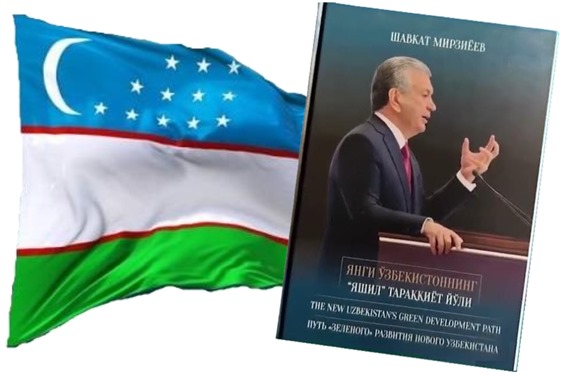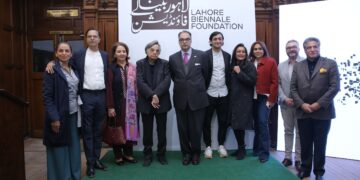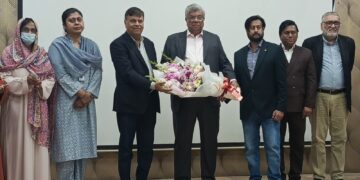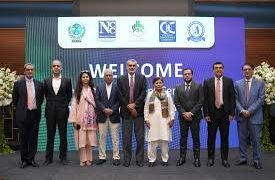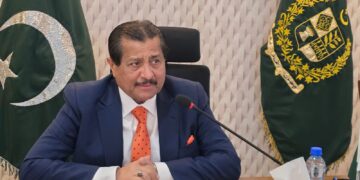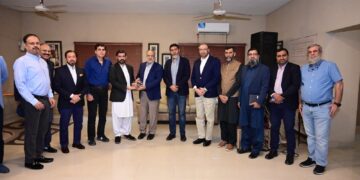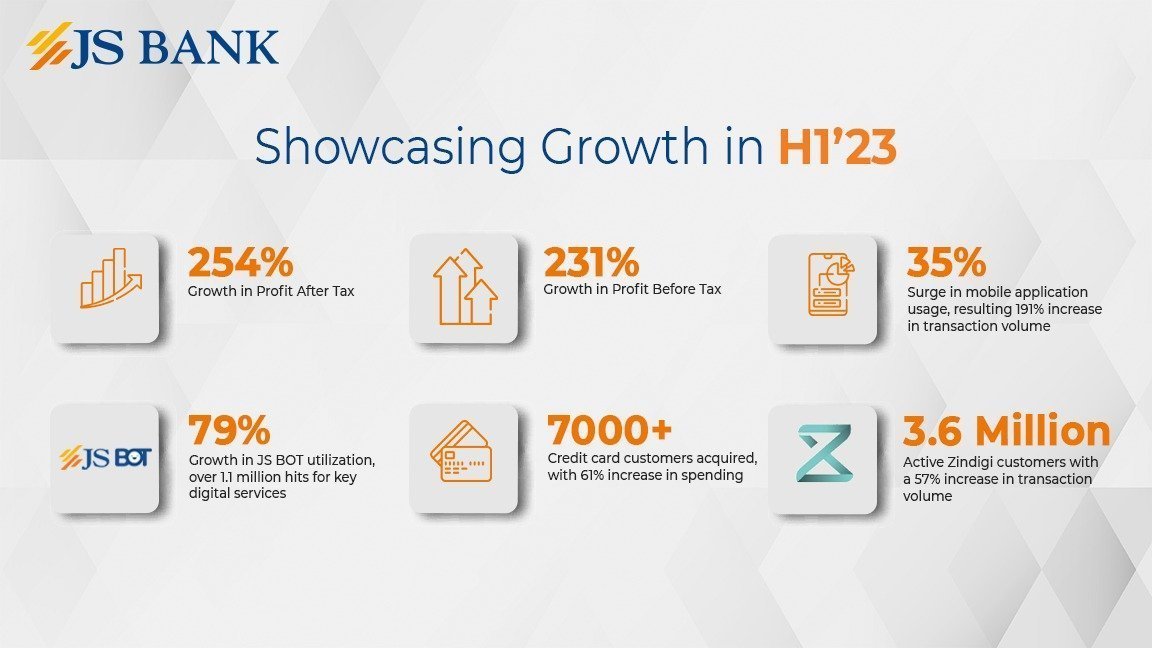In the 21st century, green development has become not just a trend but a non-alternative course for all of humanity. In the face of rapid climate change, worsening water scarcity, and biodiversity loss, sustainable development is a priority for every nation. President of the Republic of Uzbekistan Shavkat Mirziyoyev, speaking on international, regional, and national platforms, regularly promotes the agenda of sustainable green development as a vital tool for ensuring the prosperity of future generations.
The recently published book “The Path of Green Development of New Uzbekistan” presents 310 quotes and 54 initiatives put forward by the head of state between 2017 and 2025. These initiatives focus on combating climate change, the rational use of water and natural resources, the preservation of biodiversity, and the transition to a green economy.
The book consists of three chapters: “Green Development – The Path Chosen by Humanity,” “Central Asia – A Course Toward Green Development and the Future,” and “New Uzbekistan on the Path of Sustainable Development.”
The Path Chosen by Humanity
In the context of a global climate crisis, depletion of natural resources, and deteriorating environmental quality, an increasing number of countries are adopting a sustainable development model. In this concept, the green economy replaces resource-based industrial models that focus on extraction, exploitation, and disregard for environmental risks.
Uzbekistan’s leader has repeatedly emphasized that for Central Asian countries, green development must become the foundation of a new phase of modernization:
“…Only by efficiently using limited land and water resources, eliminating environmental problems, and adopting the path of green development, green economy, and green energy can sustainable development and the well-being of the population be ensured. This is the only correct path.”

This quote reflects a fundamental rethinking of state policy–from narrow economic thinking to a strategic approach where, alongside profit and growth, the focus is on nature conservation, ecosystem sustainability, and public health. That is why the President promotes the idea that the green course is not a fashionable trend but a long-term necessity. Supporting a transition to renewable energy, reducing greenhouse gas emissions, strengthening environmental legislation, and raising public awareness are all part of a systemic green reform.
The head of state constantly emphasizes that the responsibility for the future lies not only with developed countries but also with emerging economies. In this context, the President stated at the UN General Assembly (2023):
“At this crucial moment in history, we must all reflect on what kind of planet we will leave to future generations.”
This call is aimed at mobilizing the global community, but it first and foremost reflects Uzbekistan’s internal transformation–toward sustainability, resource conservation, and climate justice.
Here are scientifically grounded proposals by the head of state:
1. “Climate change has become one of the main challenges to sustainable development in Central Asia,” the President said at the COP28 summit in Dubai.

“The transition to a green economy and achieving carbon neutrality are strategic objectives of New Uzbekistan.”
2. Climate change is one of the greatest challenges to sustainable development, especially acute in Central Asia due to the Aral Sea tragedy – one of the most devastating ecological crises of our time.
3. The temperature increase in Central Asia is twice the global average. The number of extremely hot days has doubled, and a third of the region’s glaciers have melted.
4. Soil degradation, frequent dust and sandstorms, drinking water shortages, air pollution, biodiversity loss, and significant drops in agricultural yields are all negatively affecting the quality of life for millions of people in the region.
5. The President also called for the urgent adoption of a Global Framework for Climate Change Adaptation within the Paris Agreement. He stressed that the global transition to a low-carbon economy must be fair, transparent, and inclusive, considering the interests of developing countries.
6. To transform the Aral Sea region into a zone of environmental innovation and opportunity, the President invited global cooperation in creating an International Climate Technology Expo Hub in the region. He proposed establishing a Climate Science Forum based on the “Green University” in Tashkent, involving researchers and experts from around the world.
Central Asia: A Course Toward a Safer Future
Global climate change is one of the most serious problems today, affecting every country and posing a significant barrier to sustainable green development. Observed warming is causing extreme natural events such as droughts, hurricanes, extreme heat, wildfires, torrential rains, and floods worldwide.
Uzbekistan and other Central Asian countries are among the most vulnerable to ecological disasters. Amid rising climate threats, the region is developing its own response to the challenges of global warming and environmental degradation. The President’s initiatives on international platforms demonstrate that green transformation is a regional priority.
Speaking at the 78th session of the UN General Assembly (2023), the President emphasized:
“Today, the world is facing an acute environmental crisis. The triple planetary crisis caused by climate change, biodiversity loss, and environmental pollution is intensifying. Under such difficult conditions, Central Asia, still combating the tragedy of the Aral Sea, remains one of the most vulnerable regions to climate change.”
This highlights the need for regional integration in environmental security. Joint action in the management of natural resources, especially transboundary water, is critical. The President proposed a Regional Strategy to Combat Desertification and Land Degradation, stressing that sustainable agriculture and biodiversity conservation are only possible through coordinated efforts.
Among the initiatives:
– Establishment of a Regional Climate Technology Center
– Formation of a unified Green Energy Space
– Joint projects on reforestation and desertification control, especially on the dried seabed of the Aral Sea
– Development of transboundary water diplomacy based on the principles of the Helsinki Convention
In recent years, more than ten UN General Assembly resolutions have been adopted at Uzbekistan’s initiative. Many focus on environmental issues in Central Asia, reflecting Uzbekistan’s active role in regional environmental diplomacy.
All of the President’s international initiatives are rooted in national values, passed down through generations. His environmental proposals receive broad support from the international community and contribute to global sustainable green development.
A landmark achievement was the 2021 UN resolution declaring the Aral Sea region a zone of environmental innovations and technologies–the first time such a status was granted to a region. Following the drying of the Aral Sea, the area became the epicenter of a global ecological disaster with high health risks and unstable ecosystems.
Water resource management is also a central concern for the President:
“Effective water resource management with neighboring countries is key to sustainable development not only for Uzbekistan but for our entire region.”
This issue is especially relevant for Central Asia, where water is becoming increasingly scarce and politically sensitive. The President advocates for sustainable mechanisms for the equitable distribution and joint management of water flows to reduce tensions and promote harmonious development.
At the SCO Summit in Bishkek (June 14, 2019), Shavkat Mirziyoyev proposed adopting a “Green Belt” Program to promote resource-saving and eco-friendly technologies within the organization.
At the 14th ECO Summit (March 4, 2021), he proposed a mid-term strategy for energy sustainability, encouraging investment and modern technology in the energy sector.
At the Third Consultative Meeting of Central Asian Leaders (August 6, 2021, in Turkmenistan), the President called for the development of a Regional Green Agenda, aimed at climate adaptation. Its key areas include decarbonizing the economy, rational water use, energy efficiency, and increasing the share of renewable energy.
Against the backdrop of global climate concerns, Uzbekistan’s systemic environmental policy aims to improve the ecological situation in Central Asia.
Building Environmental Awareness and Culture
Uzbekistan is actively integrating the principles of green transformation into its development strategies, laying the foundation for long-term sustainable growth. This is a response to global challenges, a desire to improve citizens’ quality of life, create jobs, and promote sustainable green development. Green development in Uzbekistan has risen to the level of a nationwide movement. The main goal of New Uzbekistan’s green transition is to ensure human dignity, increase public welfare, and protect citizens’ fundamental rights.
For Uzbekistan, green development is not abstract or distant–it has become part of the constitutional course of the country, affecting all sectors of the economy and public life.
President Shavkat Mirziyoyev emphasizes:
“Accelerated transition to an economy based on the careful use of water, energy, and other natural resources is of great importance. The task of creating green and digital technologies and production enterprises is also relevant to us.”
This is not just a philosophical idea but a guiding principle of national environmental policy. Under this principle, programs are being developed to:
– Increase the share of renewable energy (target: at least 30% by 2030);
– Reduce water losses in agriculture using digital systems and precision farming;
– Improve the energy efficiency of residential and industrial buildings;
– Create smart and green cities, including the “Tashkent – Green Capital” project.
One example is the construction of solar and wind power plants in Navoi, Bukhara, and Samarkand regions. These projects, implemented with the participation of major international investors (Masdar, ACWA Power), create jobs while reducing dependence on fossil fuels.
The President also highlights the need to foster new ecological thinking among youth:
“Understanding nature, environmental education, and the development of ecological awareness and culture, especially among the younger generation – calling for kindness, compassion, and mercy – are key tasks for preserving the environment.”
In this context, special attention is given to ecological education, promotion of sustainable practices, support for startups in eco-technologies, and green innovations. The creation of a national environmental performance rating for regions and institutions has become an effective tool to stimulate sustainable change.
Uzbekistan is becoming a model of a systematic approach to sustainable green development, aligning ecological goals with economic growth and social justice. Green economy principles are increasingly integrated into national planning, making Uzbekistan not just a participant but a key driver of the global green agenda.
Conclusions: Future Prospects
1. The approach implemented in New Uzbekistan under the leadership of President Shavkat Mirziyoyev represents a synergy of political will, scientific knowledge, national policy, and international cooperation. Green development is not a fashion or temporary solution–it is a strategic choice, a path chosen by humanity. Uzbekistan demonstrates how this path can be implemented in the face of global challenges.
2. The President’s initiatives and statements show that for Uzbekistan, green development is not a temporary agenda but a strategic vector for the future. The country is steadily building the architecture of an environmentally responsible state –with new laws, institutions, technologies, and public consciousness.
3. A key feature of the Uzbek approach is comprehensiveness–from global leadership in climate diplomacy to practical transformation of the energy sector, land use, and water management. President Mirziyoyev not only articulates the principles of sustainable development but ensures their institutionalization, investment, and public support.
4. The green future path proposed and implemented by New Uzbekistan can serve as a model for countries facing similar challenges and opportunities. It is a path where economic progress goes hand in hand with care for the planet, where political will translates into concrete actions, and where sustainability becomes the new norm of development.
BY : Akmal Saidov
Academician,
Member of the Legislative Chamber
of the Oliy Majlis of the Republic of Uzbekistan.





